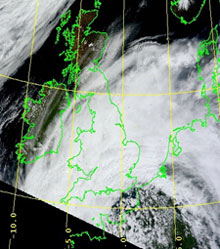What does 'uncertainty' in science really mean? New guide explains all
Release Date 27 June 2013

University of Reading scientists have contributed to a new guide on scientific uncertainty, launched today at the World Conference of Science Journalists in Helsinki. The guide from Sense about Science stresses that uncertainty is an inherent part of all science - scientists understand this, but to policymakers, journalists and the wider public, uncertainty can be misinterpreted as "unreliable".
The new guide, "Making Sense of Uncertainty", looks at:
- The way scientists use uncertainty to express how confident they are about results.
- That uncertainty can be abused to undermine evidence, for example to suggest that greenhouse gases from human activity are not changing the atmosphere.
- Why uncertainty is not a barrier to taking action.
University of Reading contributions came from Averil Macdonald, Professor of Science Engagement, Dr Ed Hawkins, a climate scientist with NCAS in the Department for Meteorology, and Kathy Maskell, communications manager at the Walker Institute for Climate System Research.
Kathy Maskell said: "Climate scientists are dealing with uncertainty all the time. The climate system is a complex place and we simply don't have precise answers about exactly how it will change in the future. So any prediction of future climate is uncertain and this can cause confusion for those making decisions about how to adapt - public, policymakers and business alike.
"More dialogue is vital here, because I think scientists and the public have very different ideas about what uncertainty means. This excellent guide to uncertainty from Sense about Science is highly pertinent and I would recommend it to anyone grappling with the issue of uncertainty in topical scientific issues such as climate change, GM foods or human diseases."
ENDS
For more details contact Pete Castle at the University of Reading press office on 0118 378 7391 or p.castle@reading.ac.uk.